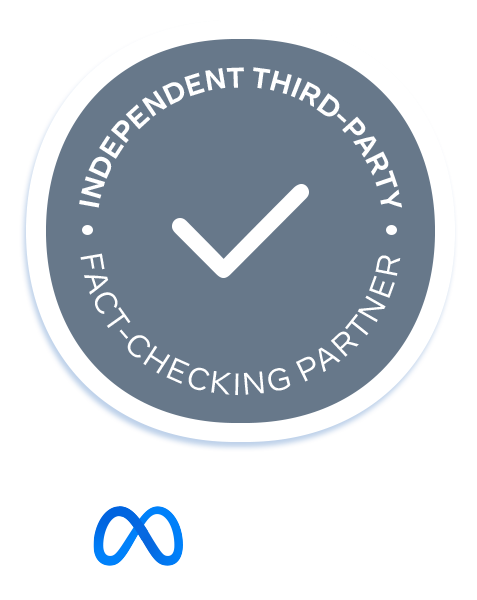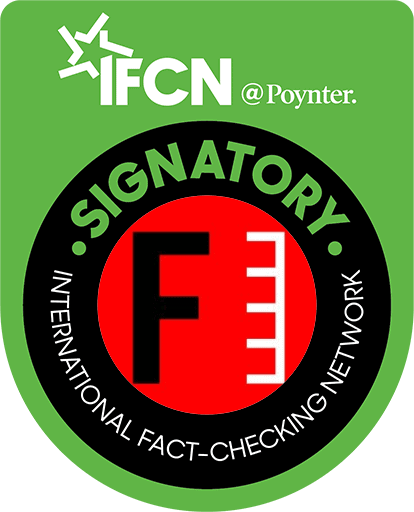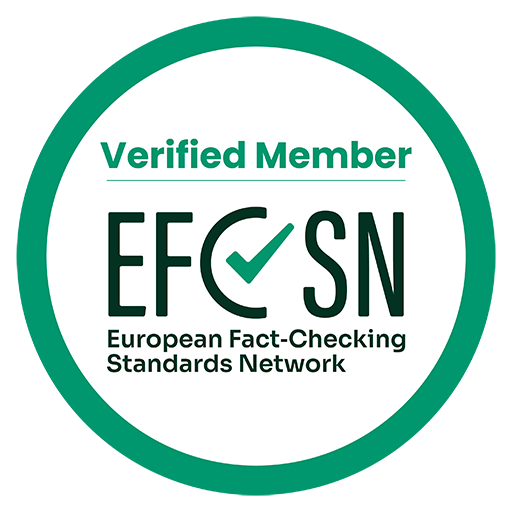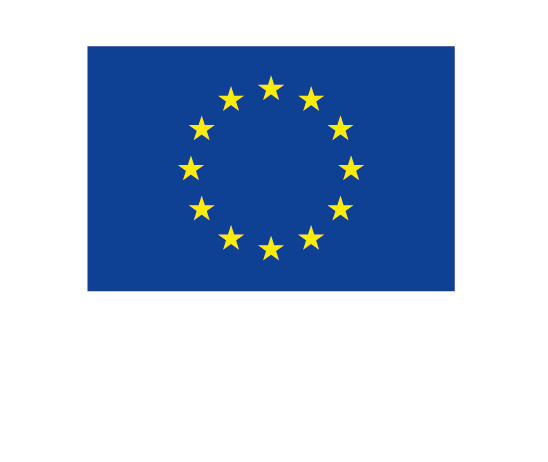Networking and Advocacy
In order to increase the quality of the institutional framework for fact-checking and the ecosystem for good journalism, Faktograf follows and participates in the shaping of the regulation, co-regulation and self-regulation in the digital communication sphere. In addition, for the purpose of quality sharing of knowledge and experiences with colleagues, Faktograf is also active in numerous networks and initiatives on a national, regional, European, and global level.
Global level
Faktograf is a member of the International Fact Checking Network (IFCN), an international network of organisations dedicated to fact-checking, since 2017.
For the eight consecutive year, in June 2024 Faktograf received a positive grade in the IFCN’s verification process, which is a confirmation of our upholding of high standards prescribed by the IFCN’s Code of Principles.
Since July 2021, as a Faktograf representative, Ana Brakus has been participating in the IFCN’s “Anti-harassment” working group, founded with the goal of addressing and combating the number of threats and harassment to which fact-checkers around the world are exposed.
Faktograf also participated in the European Commission Consultation: Safeguarding media freedom in the EU – new rules.
From September 2021 until the end of 2023, as a representative of Faktograf, Ana Brakus participated in the IFCN working group on cooperation with Youtube.
Global Fact 11, one of the largest media conferences, was held in Sarajevo in 2024. The local partner and host of the conference is the Association of Citizens “Zašto ne”, with the support of the SEE Check regional fact-checking network, of which Faktograf is a member.
Faktograf has undergone a detailed self-assessment process of its editorial practices in accordance with the criteria of transparency, professionalism, and accountability prescribed by the Journalism Trust Initiative. This is an international mechanism initiated by Reporters Without Borders, developed as an ISO standard, and recognized as relevant in the Code of Practice on Disinformation strengthened in 2022 and the European Media Freedom Act adopted in 2024.
Faktograf’s transparency report is available at LINK.
European level
Faktograf provided support to the initiation of the European Fact-Checking Standards Network – EFCSN. In August 2022, the network defined the European Code of Standards for Independent Fact-Checking Organisations and in November 2022 it selected its Managing Authority, to which Ana Brakus, Executive Director of Faktograf, was elected. Ana Brakus was reelected in 2024.
The EFCSN was presented to the public in November 2022 in Brussels. After an independent evaluation confirmed Faktograf’s compliance with the Code, Faktograf became a full member of EFCSN in July 2022.
Faktograf registered its interests in public policies related to misinformation and disinformation (Digital Services Act, Code of Practice on Disinformation), encouraging environment for sustainable journalism in the interest of the public (European Democracy Action Plan, Media Freedom Act, Anti-SLAPP Directive, European standards of the Journalism Trust Initiative) and business models for sustainable journalism in the interest of the public (Data Governance Act, Artificial Intelligence Act, Media and Audiovisual Action Plan) with the EU Transparency Register(ID 521295644592-54).
Faktograf signed the strengthened Code of Practice on Disinformation in June 2022. (Q&A, Factsheet, Signatories and commitments). Faktograf’s representative, Jelena Berković, participated in its shaping, as an observer for Faktograf and SEE Check. As one of the first signatories of the strengthened Code, Faktograf participates in the permanent working group that monitors the implementation of the Code and has submitted its first report in January 2023.
Faktograf also joined the assessment that “Big Tech has 7 months to prove that this is a ‘new dawn’ in the fight against disinformation“ made by organisations for digital human rights and evaluating factual accuracy (Avaaz, Demagog, Globsec, Maldita, Newsback, NewsGuard, Pagella Politica, VOST Europe and Who Targets Me).
Faktograf supported the EFCSN proposals related to Article 17 of the EMFA.
Ana Brakus, Faktograf Director, supported the comments of Julie Angwin, an American journalist, on the Delegated Regulation on Access to Data provided for in the Digital Services Act.
In January 2024, Faktograf participated in the e-consultation of the European Commission on the implementation rules of the Digital Services Act regarding Transparency Reports of online platforms during content moderation.
Regional level
SEE Check is a network of six organizations from five Southeastern Europe countries that work together on promoting responsible journalism, improving the quality of media literacy, and fighting misinformation and disinformation in the public space.
The network was unofficially established in March 2020 and currently consists of the portals, i.e. the publishers of the Raskrinkavanje.ba, Raskrinkavanje.me, Faktograf.hr, Raskrikavanje.rs, Fakenews Tragač and Razkrinkavanje.si portals.
Faktograf’s advisor, Jelena Berković, works as the network’s program coordinator and public policy advisor. Among other things, the network participated in the preparation of analyses and discussions on public policies related to the digital public sphere within the Berlin Process and its Civil Society Forum: during 2022 on the topic of Information Disruptions in the Western Balkans, and during 2023 on the topic of Digitalization and Connectivity.
The SEE Check network has from its very beginning been operating as a virtual regional editorial board focused on a regional approach to topics and on common analyses, with the participation of several editorial boars.
Regional analyses of this virtual editorial board are published on the SEE Check network’s portal in English. In addition, the most significant analyses of each individual portal that is part of the SEE Check network are regularly translated and published.
Analyses in which Faktograf took part:
Faktograf.hr participated in six regional analyses during 2023 (February, March, June, August, October, November). A joint analysis published in February 2023 concerned online fraud in the region, such as fake interviews or fake prize contests that serve to steal money and personal data. In the March analysis, we dealt with disinformation that were spreading in the region after the devastating earthquakes in Turkey and Syria. A joint analysis published in June refers to viral inaccurate claims in the region that the European Commission is forcing us to eat insects – the news that the EU has approved the placing of house cricket flour on the market was used to spread a conspiracy theory. The original analysis published on the SEE Check portal in August was edited by Faktograf, and we dealt with climate disinformation in our region (at the same time, this was a test phase of the new model of the functioning of the regional editorial board – each month has its own topic, each topic has its own editor, and the regional analysis is written by a newly employed journalist of the editorial board Maida Salkanović). The October regional analysis, in which Faktograf participated, refers to SLAPP lawsuits (and is also the first published text according to the new model of the functioning of the editorial board). We also participated in the November regional analysis, on reporting on the war in the Middle East.
National level
Together with Kurziv–Platform for Matters of Culture, Media and Society and Association for the Promotion of Media Culture, Art and Tolerance “Lupiga – the World Seen Through the Common Eyes” Faktograf initiated the founding of the Federation of Non-Profit Media Publishing Associations as a representative and advocating body. The goal of the project, which received support from the Active Citizens’ Fund was to provide support to its members in the process of submitting and implementing projects on an international and European level and to represent them in the processes of advocating adequate public policies. During the implementation of the project, and as part of the talks with representatives of various non-profit media, it was concluded that there are currently no capacities on the non-profit media scene to establish, administer and manage the Union of Non-Profit Media as a separate legal body. It was decided that the non-profit media would try to come together in an informal advocacy initiative.
Faktograf’s participation in public consultations is available here:
- Consultation on the proposal for the regulation on the conditions for entry into the electronic publications providers register + Report on performed consultation
- Introductory notice in the preparation of the Support Scheme and the Public Call for Grants – Initial framework: goals, activities and criteria + Report on performed consultation
- Consultation on the Draft Call for Grants: Establishment of a Media Fact Check System
- Consultation on the Action Plan for the Development of Culture and Media for the Period 2025–2027
